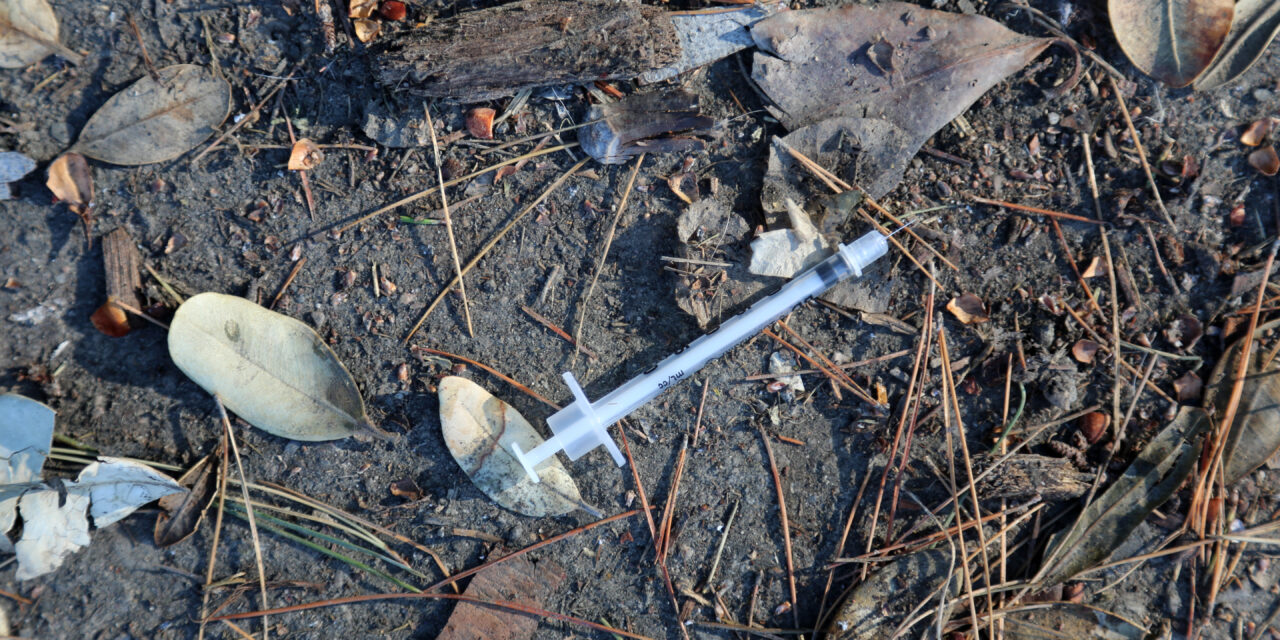Oregon’s Congress voted to recriminalize personal possession of hard drugs late last week. Pending Governor Tina Kotek’s signature, the bipartisan vote will effectively end the state’s uniquely lax drug laws.
House Bill 4002 makes possessions of small amounts of meth, fentanyl and other hard drugs a misdemeanor punishable by up to six months in jail.
The legislation passed in the House and the Senate with a 51-7 and 21-8 vote, respectively.
The decisive policy reflects Oregonians increasing dissatisfaction with Measure 110, which made having or using hard drugs punishable with an easy-to-avoid, $100 fine.
Rooted in harm reduction ethos, officials claimed the law would decrease drug addictions and overdose deaths by directing drug users to treatment, rather than jail. Citizens seemed to agree with the new approach; 58% voted in favor of the legislation.
But Measure 110 hasn’t delivered results.
Unintentional overdose deaths increased by 51% during the first two years of Measure 110’s implementation — from 472 deaths in 2020 to nearly 956 deaths in 2022. 2023 is on track to be the most devastating year of deaths yet — 628 people died of unintentional overdoses in the first six months alone.
Oregon state representative Dacia Grayber says her experience as a firefighter-paramedic informed her vote to repeal Measure 110.
“I’ve worked so many overdoses,” Grayber told The Wall Street Journal, recounting a particularly harrowing story of a fentanyl addict who died of an overdose with his toddler in his arms. “I came into this building two weeks ago knowing that we [lawmakers] had to do something, because the status quo of what we are doing is not working.”
ER visits for overdose treatment are also significantly higher than in previous years, with 300 or more people treated every month in 2023.

Graph courtesy of Oregon Health Authority’s Opioid Overdose Public Health Surveillance Update
Nor have more addicts sought treatment under Measure 110. Though fines for drug use can be waived if the person submits to a state health screening, “frustrated” police officers tell The Washington Post that the state drug helplines still aren’t ringing.
Former White House drug policy adviser Keith Humphreys explains that drug addictions can prevent people from wanting help:
The Wall Street Journal echoes Humphries:
The social ills of such drug use have rocked Oregon.
Citizens describe dodging feces, used needles and open-air drug deals on the streets of cities like Portland. Fentanyl addicts walk the streets “like zombies,” while others invade businesses to sleep and use drugs.
At least 30% more people are homeless in Oregon today than in 2020, likely driven by the availability of drugs.
“Portland is a homeless drug addict’s slice of paradise,” one homeless person told The New York Times last July, explaining that drugs were cheap and plentiful and that addicts could use them without fear of getting arrested.
Representative Jason Kropf, who introduced HB 4002, believes the bill will encourage cooperation between law enforcement and treatment centers, rather than preventing police from stopping drug abuse.
Gov. Kotek suggested she would be willing to sign a bill recriminalizing drugs in January, after she, Multnomah County Chair Jessica Vega Pederson, and Portland Mayor Ted Wheeler declared a fentanyl emergency in the region.
The Daily Citizen will keep you updated on the HB 4002’s ratification and implementation.
Additional articles and resources:
Citizens Turn Against Lax Drug Laws as Consequences of Drug Addiction Overwhelm Communities
Governments Can’t Cure Homelessness — Christians are the Solution
Governments Can’t Cure Homelessness—Christians are the Solution (Part 2)






